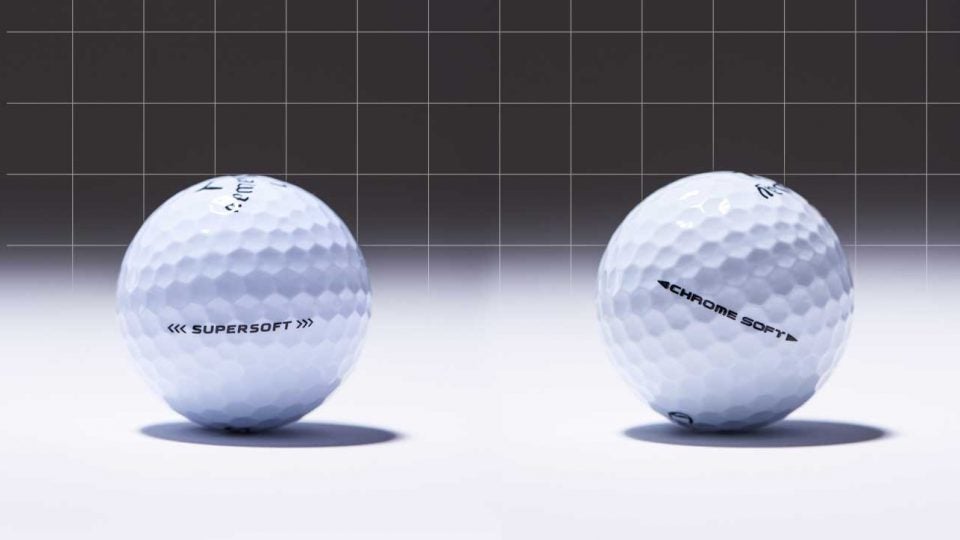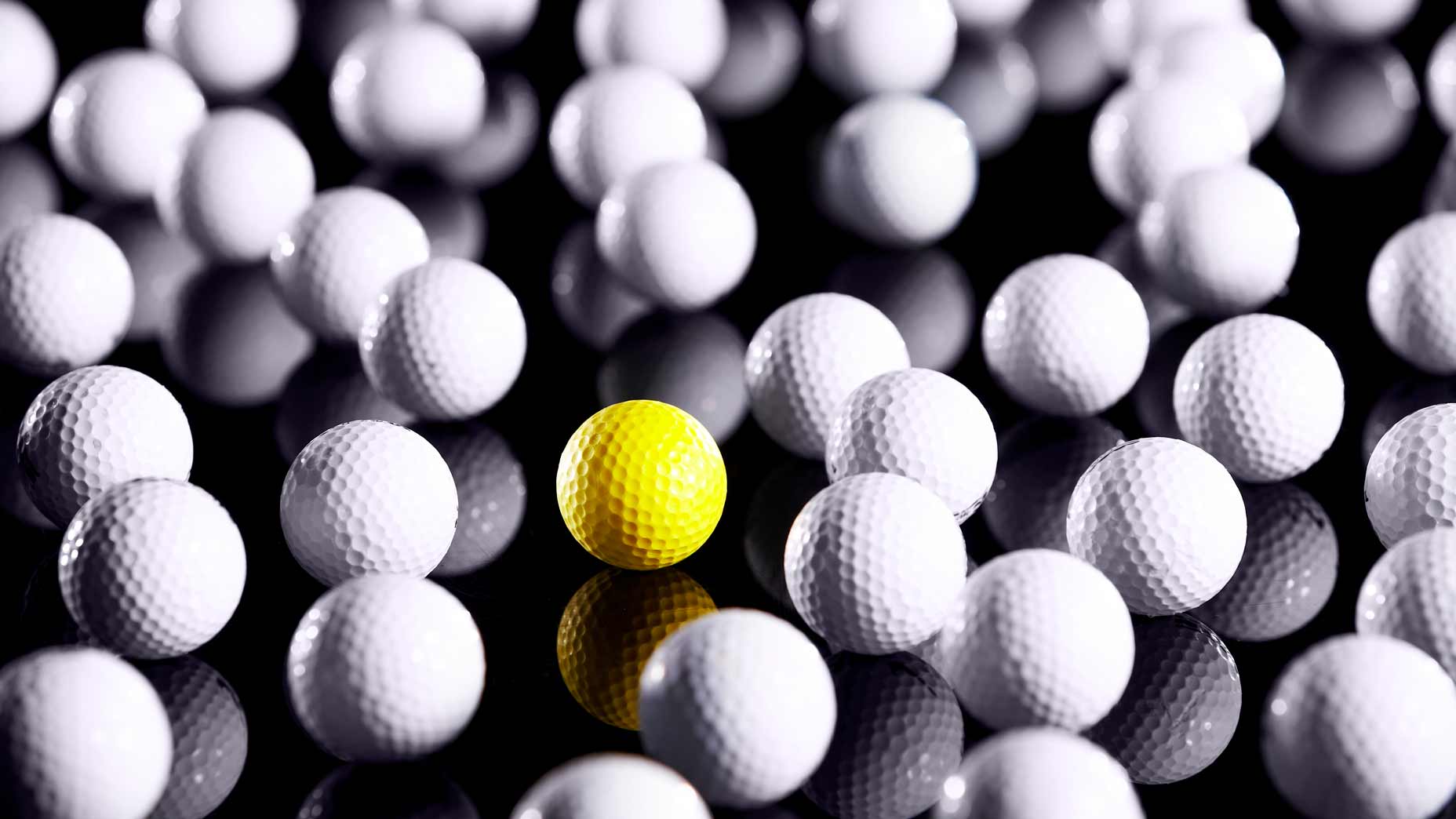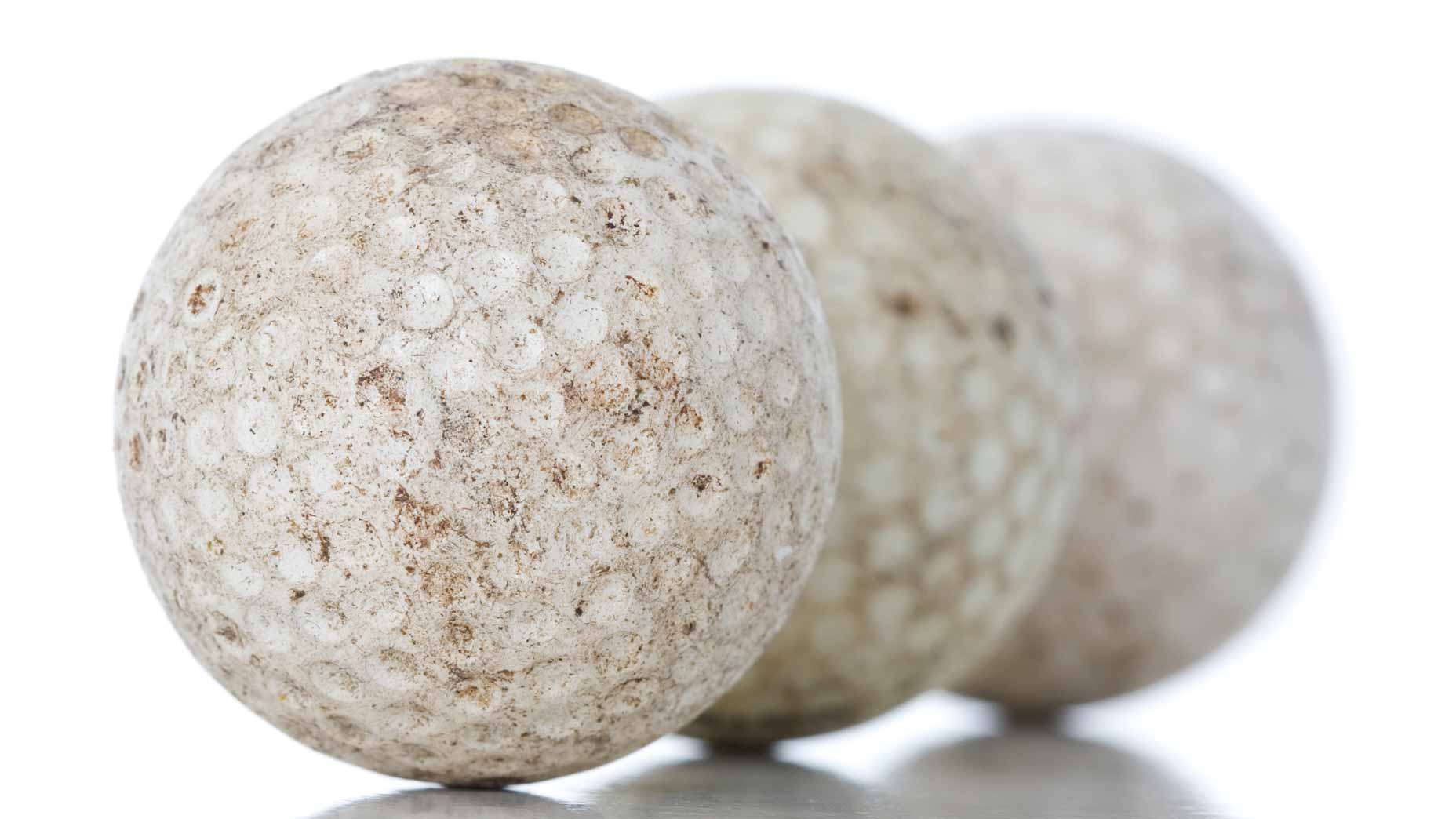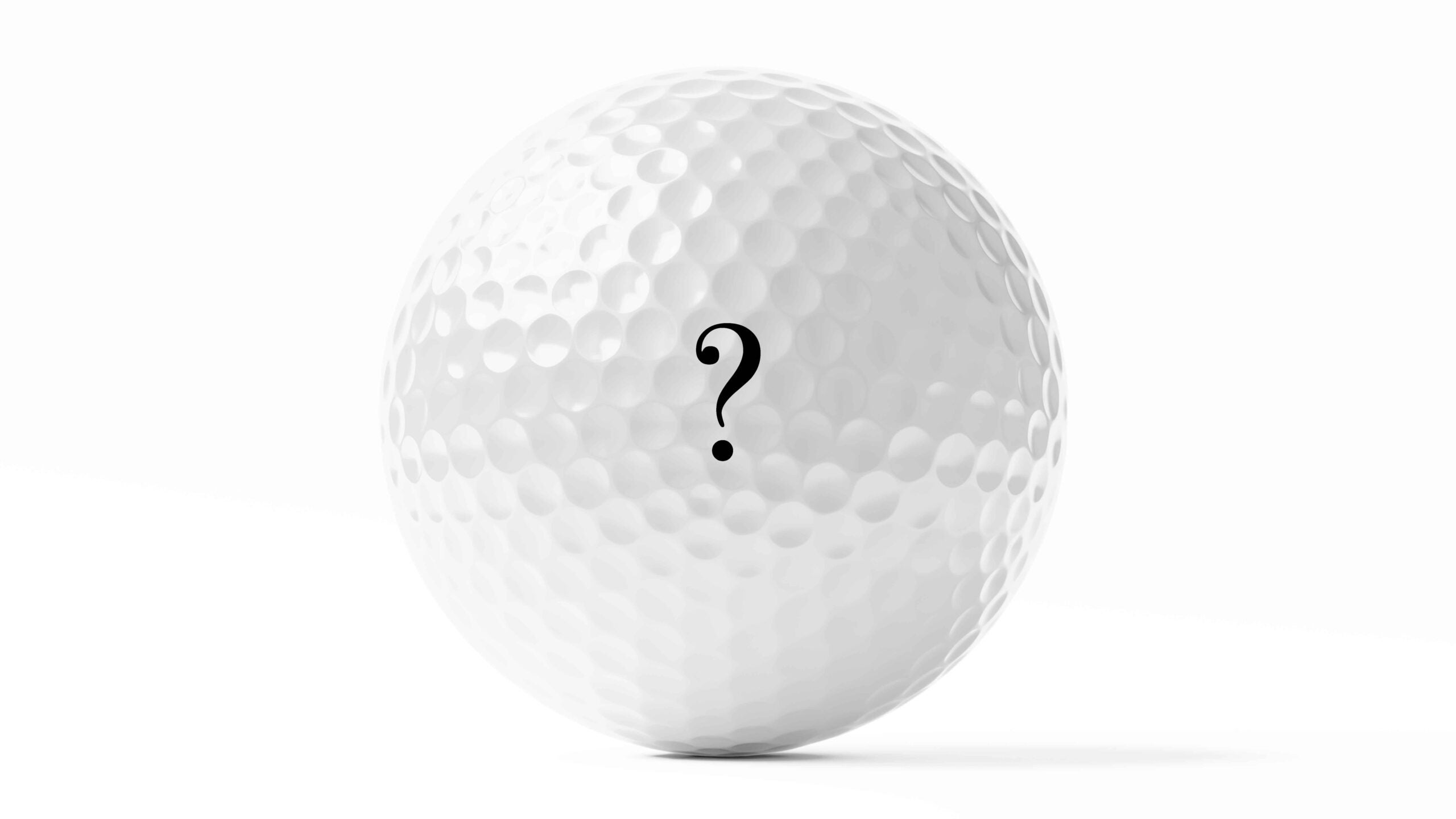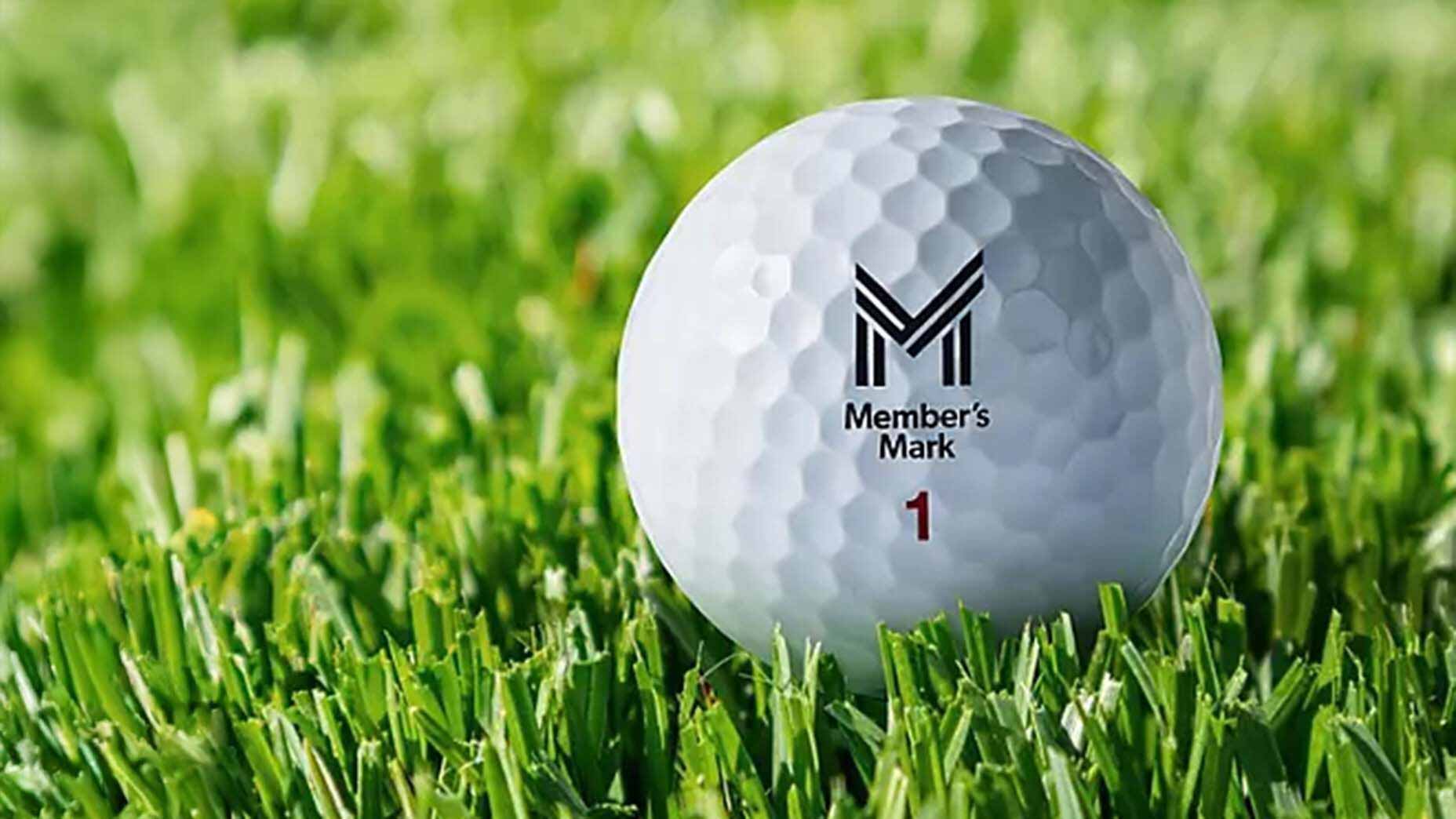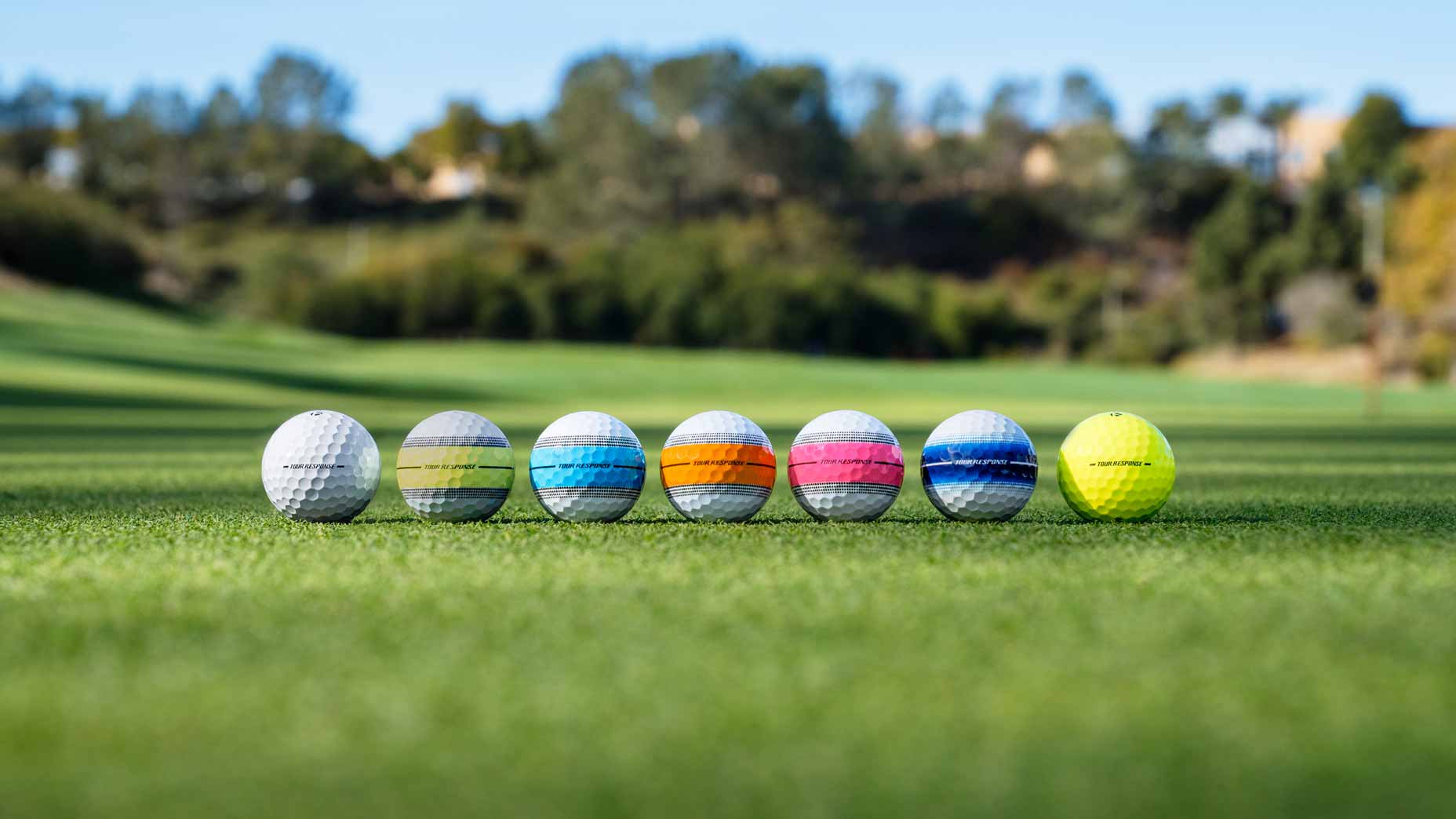Choosing a ball was once a straightforward exercise. Skilled players trended toward high-spin Tour caliber models. Weekend warriors went the two-piece distance route.
The times they have a-changed.
Better materials and boatloads of R&D — which includes mixing and matching covers and layers of varying hardness with cores in a dizzying array of sizes — have accelerated golf ball design at Ferrari-like speed. Selecting the best one for your game, as a result, isn’t as black and white as it once was. One example: choosing between Callaway’s flagship Tour model, the Chrome Soft ($45/doz.) and its low compression, distance-oriented cousin, the Supersoft ($22/doz.).
“Manufacturers now have the ability to make a ball very soft without compromising its speed,” says Jason Finley, Callaway Global Director, Brand Management, Golf Balls. “A ball like Supersoft — with its soft ionomer cover and an extremely low compression — is very low-spinning on long shots, delivering big-time distance and a straighter flight, but due to the soft cover, can still provide solid greenside performance.“
Sounds like a Tour model, no?
Actually, the solid greenside performance Finley mentions applies only if your game is based on hitting less-demanding short-game shots. In other words: square-face pitches and basic bunker blasts. An ionomer cover will never spin as much as one made of urethane on wedge shots. But it will give some players more distance off the driver. “As long as your swing speed isn’t in the triple digits,” Finley adds.
The Chrome Soft is a low-compression four-piece ball with a Graphene Dual Fast Core and urethane cover. The use of graphene (light and strong material) allows for a larger, softer inner core and a smaller outer core. The result: a hefty dose of spin separation.
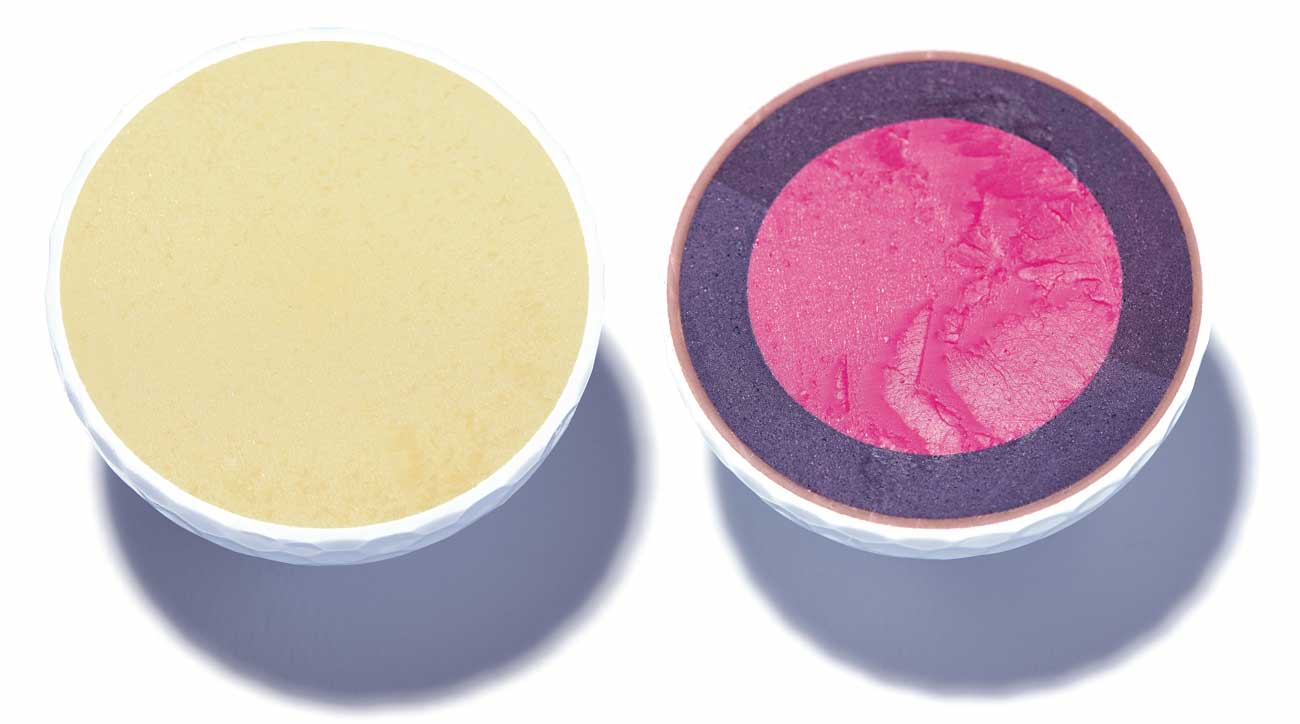
Spin separation?
“The Chrome Soft design amps up spin around the green and limits it off the driver,” says Finley. For discerning players with enough speed, it’s the equivalent of finding the Holy Grail.
“To be fair,” adds Finley, “there are massive differences between Chrome Soft and Supersoft or any high-quality two-piece ball, but the real differentiator is the precision and control the Tour model provides, not only around the greens but also on mid- and short-iron shots.”
Finley’s Law: “If you don’t favor high-spinning wedge shots or shaping approaches, the Chrome Soft — any Tour model, really — probably won’t help you score lower than Supersoft.”
So how do you decide which design is right for you? Callaway fits its Tour staff like this: Start on and around the green and see which ball works and feels best to you. Then move to short-iron and wedge shots. Only after you determine the model you prefer should you check your driver and fairway wood numbers. Even if a given ball gives you five more yards off the tee, it probably won’t help you shave as many strokes as one that works best for scoring shots.


